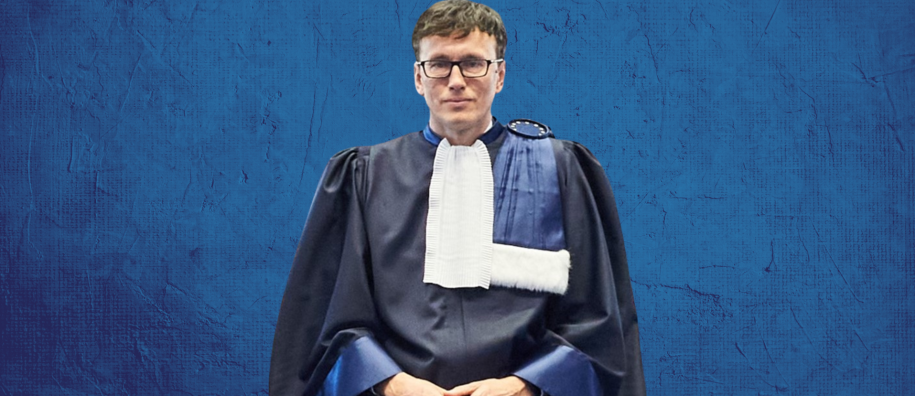
On 21 of April Mykolas Romeris University (MRU) alumnus Dr. Gediminas Sagatys took the oath of office and took up his duties as a judge of the European Court of Human Rights. He was elected to the position on 23 of January this year by decision of the Parliamentary Assembly of the Council of Europe. Doc. Gediminas Sagatys was kind to talk about human rights in Europe and his Alma Mater.
Congratulations on becoming a judge of the European Court of Human Rights. This is a great international recognition for both you and Mykolas Romeris University. What does this achievement mean to you personally?
For me, it means first and foremost confidence in me as a legal professional and a human being. At the same time, I take it as an obligation to the forty-six European countries whose representatives in the Parliamentary Assembly of the Council of Europe voted for me.
You went through a difficult selection process. You made it to the final three Lithuanian candidates, which included your colleagues, two other professors from the Law School, recognised professionals in their field, and some really tough competitors. What challenges did you face in applying for such a prestigious position?
The selection process was not easy. I had to compete with top human rights experts. I used it as an opportunity to grow. I think the saying "What you gain by achieving your goals is not as important as what you become by achieving them" is very appropriate here.
You are a human rights expert. What do you see as the most important human rights challenges in Europe and Lithuania today? How can you contribute to solving them in this capacity?
I believe that the European human rights system is being challenged by the narrative that human rights are exclusively an internal matter of each state. It is therefore a very important task to deconstruct this narrative, exposing its dangers both for the individual and for society. Of course, the people of each state know the best what they need, and the government of the state concerned knows how to provide it. However, in Europe, we are all living in close proximity, we are all connected, and an objective view of the international community and the institutions that it has created in order to guarantee fundamental human rights is very much needed. While no international court can replace the state institutions that have the primary duty to guarantee human rights, it can help them by developing a coherent, objective and reasoned human rights doctrine.
Mykolas Romeris University is renowned for its high quality legal studies, with renowned lawyers teaching here. How can Mykolas Romeris University contribute to addressing today's human rights challenges?
The protection of human rights will not be sustainable if it is only top-down. Society needs to understand that human rights are not for governments, lawyers or experts, but for its own security and development. It is therefore necessary to instil an understanding of human rights, their purpose and their benefits, in a language that can be understood by the widest possible range of people. Education and studies play a key role here. In this sense, Mykolas Romeris University has played, and I hope will continue to play, an extremely important role. Another thing is the high level of research in the field of human rights. I am sure that the University has something to offer here, too, because each generation of researchers at the University has recognised thought leaders in this field.
By your example, you inspire young people to pursue a career in law. What advice do you have for students who want to build successful career in law?
It's nice to inspire someone, but I think there is no universal recipe for a successful career. That's why I would suggest not to think about it too much. If you love what do you do, just try to do it as well as possible.
Thank you!